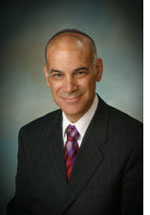By Rabbi Leonard Rosenthal

SAN DIEGO — A wise man once wrote:
“You’ve got to know when to hold ’em
Know when to fold ’em
Know when to walk away
Know when to run.”
His sage advice and lyrical advice came to mind this summer. I attended a lecture by a very well respected professor. He was a creative intellectual giant, but well advanced in years. It was disheartening to hear him teach as he rambled from subject to subject, repeated himself, and forgot basic facts. His lecture was well received and a standing ovation followed, but it was due to his reputation and life’s work rather than the night’s lesson.
As I left the auditorium I remarked to a friend that it was unfortunate that this scholar continues to speak in public, because his otherwise stellar career will conclude on a melancholy note. It is far better when people recognize that they are beyond their prime and need to “pack it in.” (I also told him that in my case, the time was last year.)
As parashat Va-etchannan opens, Moses tells the Israelites that he begged God to change God’s mind and allow him to enter the Promised Land: “I pleaded with the Lord at that time, saying, O Lord, God, You who let Your servant see the first works of Your greatness and Your mighty hand…Let me, I pray, cross over and see the good land on the other side of the Jordan, that good hill country, and Lebanon.” (Deut. 3:23-25)
But God rebuked Moses, “Enough! Never speak to Me of this matter again!” (3:26)
The Midrash explains why God refused to reconsider and allow Moses to enter the Promised Land. The Rabbis said that the situation can be compared to that of a King who had a beloved servant. The King favored and trusted his servant and charged him with appointing all of the guards of his castle and the officers in his army.
Time passed and one day the King’s subjects saw the beloved servant begging the King’s gatekeeper to allow him into the castle. The gatekeeper refused. All of them wondered what had happened. “How can it be that one day this man is able to appoint the guards of the King’s castle and the officers in his army, and the next day he requests to be admitted to the palace and is turned down?”
The gatekeeper reported the King’s decision, “My servant has done nothing wrong, but his hour has passed!”
So it was with Moshe Rabeinu. One day he was God’s closest and greatest servant, but when he begs to enter the Promised Land he is turned away. It is as if God said to him, “Your hour has passed!”
It was not that God did not love Moses or empathize with his plight. But God knew that Moses’ time in the spotlight was over, and now it was time to turn the leadership role over to Joshua and those of his generation.
Perhaps it was more of an act of compassion than punishment that God did not allow Moses to accompany the Israelites into Canaan. They did not have to see him deteriorate before their eyes. Rather, “Moses was a hundred and twenty years old when he died; his eyes were undimmed and his vigor unabated.” (Deut. 34:7) They mourned Moses, but would always remember him as the vigorous and courageous leader he was.
Some people don’t know when to “hold ’em” and when to “fold ’em.” I always thought it unfortunate the great tenor Luciano Pavarotti continued to perform well past his prime.
Leone Magiera, who directed Pavarotti’s final performance wrote in his memoirs that the performance was prerecorded and, “The orchestra pretended to play for the audience, I pretended to conduct and Luciano pretended to sing. The effect was wonderful.” These words are a sad epitaph.
Nancy Regan made a different decision about her husband, President Ronald Reagan, when he was diagnosed with Alzheimer’s Disease. As the disease progressed, Nancy protected the President’s privacy and did not allow him to appear in public. She explained the president’s solitude to Larry King in 2001, “Ronnie would want people to remember him as he was.”
Knowing when to pull back or step down is not an easy decision, whether it is ending a career or giving up the car keys. Let us hope and pray that when we are confronted by these difficult choices, we will also be wise and capable enough to known when to hold ’em and when to fold ’em.
*
Rabbi Rosenthal is spiritual leader of Tifereth Israel Synagogue in San Diego. He may be contacted at leonard.rosenthal@sdjewishworld.com